Reviews
Robert Aldrich
USA, 1972
Credits
Review by Veronika Ferdman
Posted on 16 April 2013
Source Universal DVD
Categories Acid Westerns
At first it seems as though Robert Aldrich’s Ulzana’s Raid wears the clothes of an acid Western rather loosely and uncertainly. But by its last image of McIntosh trying to roll a cigarette as he bleeds to his death, Aldrich has created a tired and brutal vision of the American west. Not shying away from the subgenres characteristic cascade of violence (cut up and burned flesh, Apaches playing catch with a man’s freshly plucked organ, and suicide), the camera lingers over maimed bodies with a detached, almost exhausted, matter-of-factness.
Fatigue is the undercurrent of the film, most specifically tied to the body of McIntosh as the man who has been around long enough to have seen the myth of the west cannibalized and spat back out in unrecognizable form. He stands opposite the young and moralistic Lt. Garnett DeBuin who leads a brigade of soldiers - aided by McIntosh, who is an expert tracker and Ke-Ni-Tay, an Apache - to stop a cabal of Apaches, headed by the fearsome Ulzana, before they enact more atrocities on the white men and women living in the land.
At first the young lieutenant suggests that perhaps the trouble between race relations stems from white people not being Christian in their dealings with the Native Americans. But as he witnesses Ulzana’s mounting cruelty (a man is burned alive and tied to a post with his dog’s tail shoved in his mouth, just for kicks) he reverses his cry for Christian understanding, claiming to hate the Apaches. He angrily stops his men from cutting up the body of a dead Apache (in the manner that the Apaches would a white man), but his indignation comes not from a place of Christian love. It is a quavering attempt to keep the distinctions between “us” and “them” taut. (At one point McIntosh says to him: “You don’t like to think of white men behaving like Indians. Kind of confuses the issue.)
And while the film primarily focuses on the bloodshed carried out by the Apaches, a key scene shows a soldier escorting the wagon of a woman and young boy, abandoning them at the sight of Ulzana and his men. He turns his horse back around at the women’s hysterical screams of: “Soldier, don’t leave me!” But then in a feat of anti-heroics he shoots her (presumably out of “mercy”), and takes the child with him, only to have his horse shot down. At this point the soldier turns the gun on himself (where is his mercy now?) and leaves the child totally defenseless.
As the film continues the jaundiced line between good and evil, us and them, grows wan as to all but disappear, leaving Ulzana’s Raid in an expanse of sun-bleached landscapes in which night and day compete with one another (for there are no transitional states such as twilight and dawn) in an endless game with no victor, only the perpetuation of light and dark; life and death.
The lieutenant’s confusion, (he asks, more than once: “Why do they do these terrible things? I mean, after all, they are men made in god’s image like ourselves?”) and blond-haired, dirtied blue-uniformed body is out of place with the sand and tan colors of the landscape. McIntosh, in all his grizzled earthiness with graying hair like scratchy tumbleweeds on his head, blue eyes getting lost in the terrain of his face (a face which Aldrich relishes featuring in close-up) of wrinkled valleys, wears faded clothes of tan and orange, merging with the landscape.
At the end, Aldrich leaves us with deep misgivings and fear about the future, as McIntosh lies dying in the dirt, refusing to be taken back to the base. Even with Ulzana’s death - at the hands of Ke-Ni-Tay and not the Lieutenant (or his forces) due to a silly strategic mistake on the Lieutenant’s part in having the brigade sound the horn to alert McIntosh of his eminent rescue, thus giving notice to Ulzana of their arrival and allowing him time to flee - we are left to wonder how a country can survive when this youth (the hope of the nation!) is so incapable and morally inconsistent.
While never spoken directly the film begs for the excavation of history. The Lieutenant’s musings about Christianity and incredulousness over how men (Apaches) could be so cruel when “they are men made in God’s image like ourselves” in the foundational years of the western genre would have borne no tinge of irony. But, by 1972, such questions are meant to encourage both a cinematic and historical seppuku—drive the knives into the innards of our own history and maybe among the flowing blood and guts we have so long tried to conceal some truth will spill out.
More Acid Westerns
-
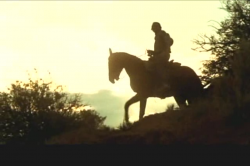
Ride in the Whirlwind
1965 -
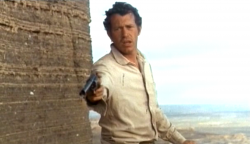
The Shooting
1966 -
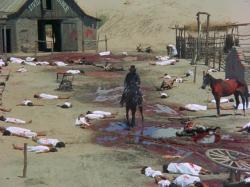
El Topo
1970 -
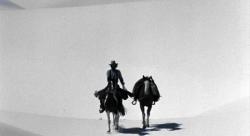
The Hired Hand
1971 -
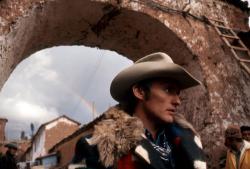
The Last Movie
1971 -
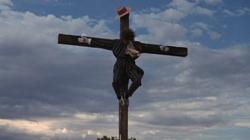
Greaser’s Palace
1972 -
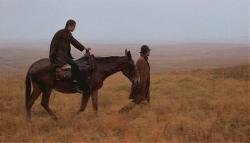
Bad Company
1972 -
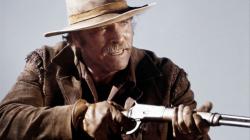
Ulzana’s Raid
1972 -
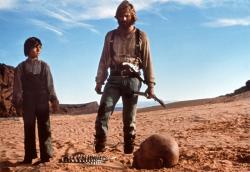
Jeremiah Johnson
1972 -
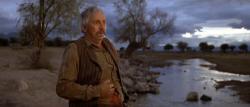
Pat Garrett & Billy the Kid
1973 -
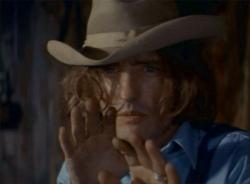
Kid Blue
1973 -
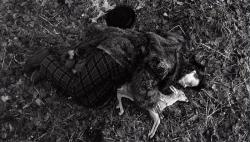
Dead Man
1995
We don’t do comments anymore, but you may contact us here or find us on Twitter or Facebook.



